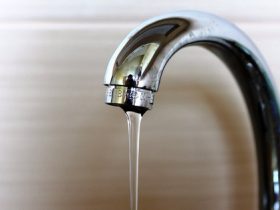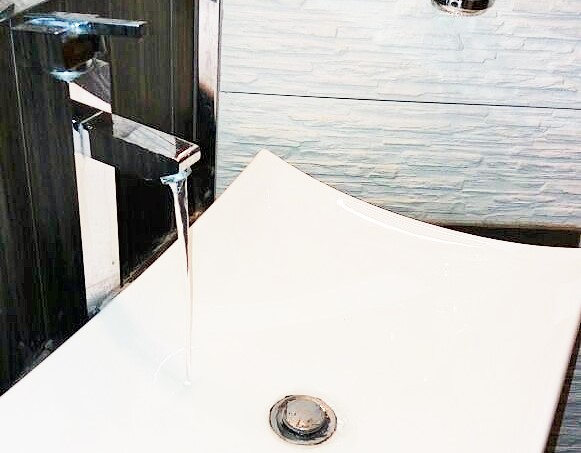Best Techniques for Addressing Low Water Pressure in Your Home
Best Techniques for Addressing Low Water Pressure in Your Home
Blog Article
Just how do you really feel in relation to 9 Reasons for Low Water Pressure in Your House?

Low tide pressure in your house can be an aggravating trouble, impacting whatever from showering to washing meals. If you're experiencing weak water flow, there are several feasible reasons and options to explore. In this overview, we'll discuss typical reasons for low tide stress and practical actions to deal with the problem efficiently.
Introduction to Low Tide Stress
Low water pressure occurs when the circulation of water from your taps, showers, and various other fixtures is weak than common. This can make everyday tasks a lot more challenging and much less effective. Recognizing the root causes of low tide pressure is crucial to finding the appropriate solution.
Usual Causes of Low Tide Stress
Faulty Stress Regulatory Authorities
Pressure regulatory authorities are accountable for preserving consistent water pressure in your home. If they malfunction, it can cause low water pressure or uneven flow throughout your home.
Metropolitan Supply Of Water Issues
Sometimes, the trouble exists outside your home. Local water supply concerns, such as main line leakages or maintenance job, can momentarily minimize water pressure in your area.
Pipeline Obstructions
Gradually, pipelines can become obstructed with natural resource, sediment, or debris, limiting the circulation of water. This is a common issue in older homes with galvanized steel pipes.
Corrosion
Corrosion within pipes can result in leaks and lowered water stress. Rust accumulation can tighten water flow, specifically in maturing plumbing systems.
Exactly How to Identify Low Water Pressure
Checking Pipes
Evaluate visible pipes for indications of leaks, rust, or blockages. Take note of any type of unusual sounds, such as knocking or rattling pipes, which can suggest issues within the plumbing system.
Consulting with a Plumber
If you're not able to pinpoint the reason for low water stress, take into consideration employing a professional plumber to conduct a complete evaluation. They can identify underlying issues and recommend suitable services.
Examining Faucets and Components
Beginning by checking the water pressure at various faucets and fixtures throughout your home. If the concern is separated to particular areas, it may indicate localized problems.
Do It Yourself Solutions to Deal With Low Water Stress
Flushing Hot Water Heater
Sediment accumulation in the water heater can limit circulation and reduce efficiency. Flushing the tank occasionally assists remove sediment and keep ideal performance.
Checking Stress Regulator
Ensure that the pressure regulatory authority is operating correctly. Changing or changing the regulatory authority can help restore correct water stress throughout your home.
Cleansing Aerators and Showerheads
Natural resources can gather in aerators and showerheads, lowering water circulation. Remove and cleanse these parts routinely to boost water pressure.
Cleaning Clogs in Water Lines
For minor blockages, attempt utilizing a plumbing snake or chemical drainpipe cleaner to clear obstructions in pipelines. Be cautious when utilizing chemicals and adhere to safety guidelines.
When to Call a Professional Plumber
If do it yourself efforts fail to deal with the problem or if you presume significant plumbing problems, it's finest to look for support from a certified plumber. They have the expertise and tools to attend to complicated concerns safely and successfully.
Safety Nets to Maintain Water Stress
Installing a Stress Booster
Consider installing a stress booster pump to boost water stress in areas with continually reduced flow. This can be especially helpful for multi-story homes or homes with high-demand fixtures.
Tracking Water Use
Bear in mind water usage habits and stay clear of overtaxing the plumbing system. Straightforward modifications, such as shocking showers and washing tons, can help maintain appropriate water stress.
Normal Upkeep
Schedule regular upkeep for your plumbing system to prevent problems such as rust, leaks, and blockages. Attending to small problems early can help avoid more significant repair services in the future.
Verdict
Handling low water stress can be aggravating, but recognizing the underlying reasons and executing suitable options can restore optimal flow throughout your home. Whether it's cleaning up aerators, checking pipes, or consulting with a plumber, taking aggressive steps can make sure a steady supply of water for your daily demands.
FOUR WAYS TO FIX LOW WATER PRESSURE NOW
Turning on a shower or faucet only to find the water comes out in a sad, slow drizzle is never a good feeling. How exactly are you supposed to wash a pan or take a quick shower when it takes 10 minutes just to rinse off a little soap? The good news is that when your water pressure is bad, there's always a cause: typically one that can be easily fixed. Here are some of the most common causes of low pressure and what you can do to fix the issue:
DEBRIS AND MINERAL DEPOSIT BUILDUPS
If you notice low water pressure from just one or two of the fixtures in your house, the problem likely has to do with debris buildup. Water is full of minerals and other debris, all of which can accumulate in your pipes and on your fixtures. This can cause a blockage that affects how much water flows through. To fix this, try filling a small plastic bag with white vinegar, and use a rubber band to hang it around your showerhead or faucet. Let the head of the fixture soak for a few hours, and the vinegar should loosen the deposits.
WATER LEAKS
Leaks are another common cause of low water pressure. If water is flowing out of your plumbing through a hole or crack before it can reach your fixture, the pressure coming out of the faucet or showerhead will be lower. A plumbing professional is your best bet for finding and repairing a leak in your water supply pipes.
Leaks are another common cause of low water pressure. If water is flowing out of your plumbing through a hole or crack before it can reach your fixture, the pressure coming out of the faucet or showerhead will be lower. A plumbing professional is your best bet for finding and repairing a leak in your water supply pipes.
A VALVE ISSUE
If you have low water pressure throughout your home, check your main shut-off valve to make sure it's completely open. You may also want to see if there's a pressure-reducing valve installed. If there is, have a plumber help you adjust the settings to get the pressure you're looking for.
OTHERS USING WATER
Believe it or not, your low water pressure could be caused by your neighbors. If you notice low pressure at certain times of day, it may be because you and the people living next to you have similar schedules - when everyone is showering at the same time, the pressure will be lower in every home. Low pressure throughout the neighborhood may also be caused by an issue with your municipal water supply. If that's the case, call the supplier to see if they're working on the issue.
https://www.rotorooter.com/blog/water-leaking/low-water-pressure-fixes/

As a devoted reader on Dealing with Low Water Pressure in Your Home, I was thinking sharing that excerpt was essential. Enjoyed our blog posting? Please share it. Help somebody else find it. Thank-you for taking the time to read it.
Get Quote Now Report this page